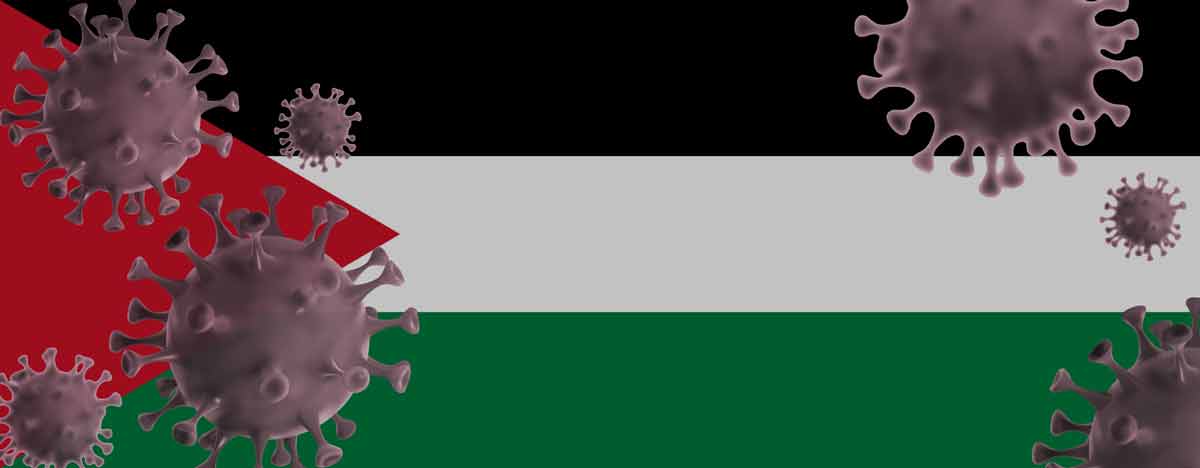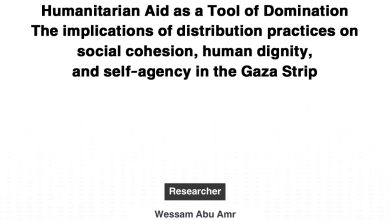The Pandemic: A View from Gaza

Mariam Mahmoud and Omar Shaban
Editor’s note: This is the third in POMED’s series of short interviews with civic activists, researchers, and others in our MENA network to spotlight the pandemic’s effects on rights and governance across the region. In this Q&A, we are joined by Omar Shaban, the Founder and Director of PalThink for Strategic Studies, an independent think tank based in Gaza that aims to amplify and empower civil society in Palestine. This interview has been edited for length and clarity.
Background: Israel and Egypt’s 13-year-old blockade on Gaza severely limits the Strip’s two million residents from accessing specialized medical care, medical equipment, and supplies, posing a particular challenge during a pandemic. Fortunately, Gaza has so far avoided a large-scale outbreak. On March 20, the Hamas-led government shut down restaurants and cafes, banned public gatherings, and set up quarantine centers at the Rafah border and other entry points. Two days later, authorities announced the first reported COVID-19 cases in Gaza, two travelers who had entered earlier through Rafah. To date, Gaza has had just 72 confirmed cases and one death. Last month the authorities began easing restrictions.
POMED: How has the pandemic affected daily life in Gaza?
Omar Shaban: Daily life has continued without too much change because social distancing is not that easy here. Gaza is one of the most densely populated places in the world, with extended families of 20 members or more often living together in crowded homes. Regular power outages also make it difficult for people to stay inside. Gazans continued to flock to markets and other public spaces during our partial lockdown.
Generally, the blockade makes life here feel impossible. But ironically, during the pandemic, some Gazans see the blockade as helpful because it helps to stop infections from coming in.
Gaza suffers from a 50 percent overall unemployment rate, with as many as 75 percent of youth out of work. How has the pandemic affected these dire economic conditions?
The restrictions imposed by the Gazan authorities particularly harmed small businesses, NGOs, and self-employed workers. And working from home is not easy considering that our internet providers cannot handle a surge in demand.
One thing we’ve seen is donor resources being redirected from initiatives for our unemployed young people to programs to combat the virus in other countries. OurThe concern is that continued diversion of donor funds could have more dire consequences for Gazan youth than the virus itself.
Making our economic situation even harder is that, to demonstrate opposition to Israeli annexation plans, the Palestinian Authority is refusing to accept tax revenue transfers from Israel and has not paid the salaries of 40,000 Gazan public servants since May.
How is the pandemic affecting dynamics with Israel?
As Israel, the Hamas government, and the Palestinian Authority contend with a common enemy—the coronarvirus—some degree of cooperation is inevitable. For example, as the demand for masks and protective wear for healthcare workers in Israel and the West Bank increased, Israel tapped into the Gazan textile industry. Manufacturers in Gaza expanded their workforce to meet this demand, which offered us a bit of economic relief. Although such coordination is outside the political realm, the health crisis is forcing a shift in priorities that could pave the way for more cooperation.
Mariam Mahmoud works with POMED’s Research Program. Omar Shaban is the founder and director of PalThink for Strategic Studies, an independent think tank based in Gaza. Follow him on twitter @Omarthink.




